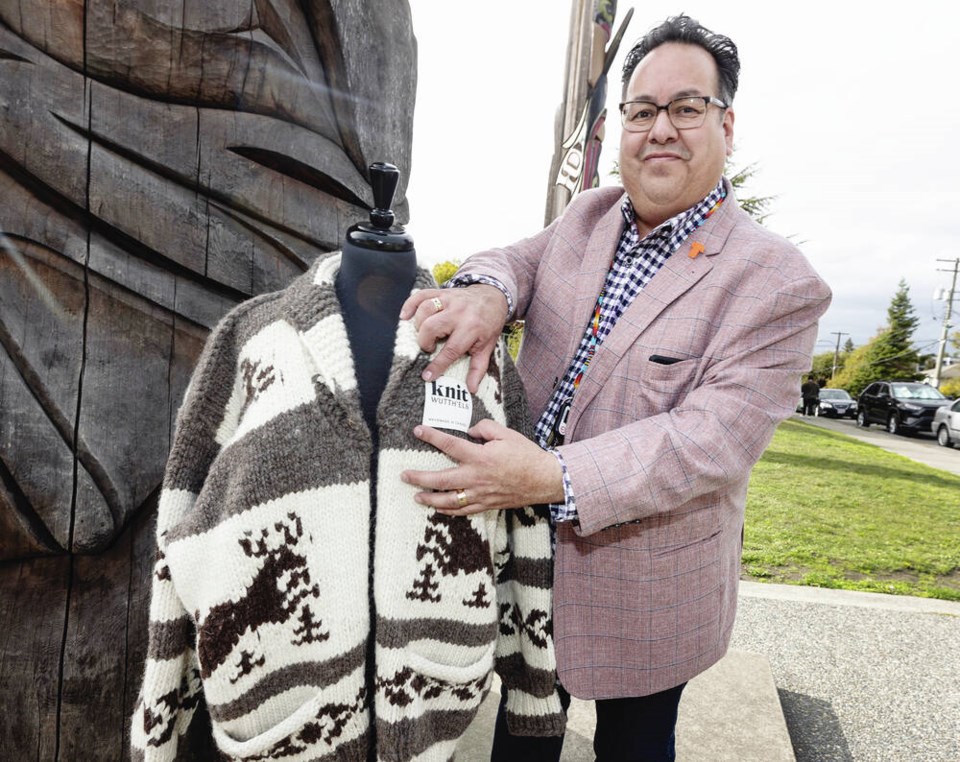About a dozen knitters of Cowichan sweaters are about to get a big pay boost for their handmade garments. The Victoria Native Friendship Centre has launched an online retail outlet to sell handmade Cowichan sweaters in an effort to help knitters receive a fair wage for their work.
Ron Rice, executive director of the centre, said experienced knitters have been selling their garments wholesale to stores in Victoria and Nanaimo and making as little as a couple of dollars per hour.
A sweater takes 24 to 40 hours to make and knitters were selling them for $90 to $140, Rice said. The friendship centre has started buying the sweaters for about $500.
Part of the goal is to move the traditional sweaters away from the “tourist trinket category” and elevate them to “iconic status” with consumers, he said.
Through a new online outlet, , a limited run of sweaters will become available for sale Thursday afternoon for about $800 to $900.
“The way that we’re framing it is around this idea of social justice that, you know, wearing a sweater by Knit is more about social justice than a simple fashion statement,” Rice said.
“These are garments that are going to be handed down. If they’re cared for properly, they’ll last for generations, so we’re hoping people can see the value.”
Knitting was introduced to Indigenous communities in residential schools and in some cases informally by settler women, said Rice, a Cowichan Tribes member.
Many Indigenous girls took to it naturally because they had related skills with basket and blanket weaving, and they began to add their own cultural expression through motifs and border designs, he said, adding the craft has become sacred to Cowichan and Coast Salish people.
The personal touch in each sweater is evident to those familiar with the craft, said Rice, who recalled working with a woman at the Cowichan Culture Conference Centre who could look at a sweater from 20 paces and identify the family it was from.
At 10 paces, she could name the person who knitted it, and when she was holding the sweater in her hands, she could say which family member spun the wool.
“Much like a painter, or a poet or a songwriter, there is life in these stitches,” he said.
The Knit initiative is launching with about a dozen knitters from Cowichan Tribes, and Rice hopes it will expand to include many more.
As with other Indigenous art, Cowichan sweaters have become the victim of cheap knock-offs.
Rice said the Knit initiative is trying to draw attention to the fact that if you don’t know the knitter of a sweater, it’s probably a knockoff.
>>> To comment on this article, write a letter to the editor: [email protected]



